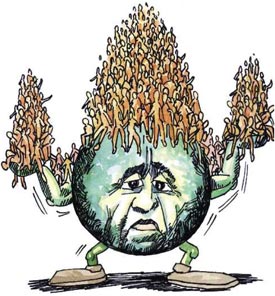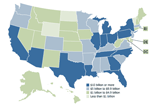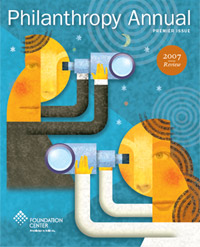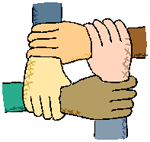News
Let Us Now Praise ... Greg Mortenson
Jun 30, 2008
 If we could live our life over again, we'd want to be Greg Mortenson.
If we could live our life over again, we'd want to be Greg Mortenson.
 If you haven't read Three Cups of Tea, by Greg and David Oliver Relin, then run, don't walk, to your nearest neighborhood book store or library and get it, read it, and pass it on to a friend. Then set out your penny jar at the office and get cracking. Greg Mortenson is the power, the inspiration, the miracle behind the Central Asia Institute (CAI), and he has devoted his life to bringing education to rural Pakistan and Afghanistan. He has built dozens of schools, provided scholarships for advanced education beyond the primary grades, trained and employed scores of teachers, provided health care training and services, and developed projects to bring clean water to remote communities.
If you haven't read Three Cups of Tea, by Greg and David Oliver Relin, then run, don't walk, to your nearest neighborhood book store or library and get it, read it, and pass it on to a friend. Then set out your penny jar at the office and get cracking. Greg Mortenson is the power, the inspiration, the miracle behind the Central Asia Institute (CAI), and he has devoted his life to bringing education to rural Pakistan and Afghanistan. He has built dozens of schools, provided scholarships for advanced education beyond the primary grades, trained and employed scores of teachers, provided health care training and services, and developed projects to bring clean water to remote communities.
Starting out on a shoestring, living in his car, handwriting over 500 letters of appeal to potential donors for his first school, Mortenson in a mere 15 years has accomplished more to bring us together and to advance world peace than anyone else we know of. CAI's Mission Statement should be a mission statement for all of us: “To promote and support community-based education, especially for girls, in remote regions of Pakistan and Afghanistan.” And it can be. Go online, learn more about CAI, read that book, then give, to a cause that is quietly reforming one corner of the world, and showing us how to do it planetwide.
 Though he is overdue the Nobel Peace Prize, all we can do here is award Greg Mortenson All Together Now's first “Golden A” for Achievement. In his compassion, his farsightedness, and his industry, we see the future of our species, if our species is to have a future at all.
Though he is overdue the Nobel Peace Prize, all we can do here is award Greg Mortenson All Together Now's first “Golden A” for Achievement. In his compassion, his farsightedness, and his industry, we see the future of our species, if our species is to have a future at all.
The Big Squeeze
Jun 29, 2008
 It took a million years for humanity to reach a population of one billion. It took 130 years to double that; 45 years to double it again; and, failing a catastrophe on the scale of the Black Death, it will take around 50 years to double it again to 8 billion by 2027 or so.1
It took a million years for humanity to reach a population of one billion. It took 130 years to double that; 45 years to double it again; and, failing a catastrophe on the scale of the Black Death, it will take around 50 years to double it again to 8 billion by 2027 or so.1
In the more developed countries, population is growing at the rate of two per minute; in the less developed countries, at 151 per minute.2
More than global warming, more than world terrorism, more than bird flu and HIV AIDS, the crunch of overpopulation threatens the stability and security of the world. There are simply too many of us for this poor planet to sustain, and peaceful means of applying the brakes to population growth must be found before there are so many of us that violent ones are forced upon us.
Many organizations are involved in the study of population growth and engaged in activities to ameliorate it. A few are listed below. If you believe others should be here, email us, and we will add them.
- United Nations Population Fund (UNFPA)
- Internationally funded source of population assistance for developing countries.
- The Population Council
- Seeking to improve the well-being and reproductive health of current and future generations.
- Population Action International
- Dedicated to advancing policies and programs that slow population growth in order to enhance the quality of life for all people.
- Population Research Institute
- Aims to educate the general public about the worldwide population control movement, its human rights abuses and racist foundations.
- Population Reference Bureau
- Informs people around the world about population, health, and the environment, and empowers them to use that information to advance the well-being of current and future generations.
- Population Resource Center
- Organizes programs that provide policymakers with population data.
- Worldwatch Institute
- Delivers the insights and ideas that empower decision makers to create an environmentally sustainable society that meets human needs.
Many of us won't be here in 2050; however, most of us—as well as our children and their children—will. What are you doing today to prepare that world for them? Do you think it's enough?
____________________
1 Source: First and second billion: Population Reference Bureau. Third through eighth billion: United Nations, World Population Prospects: The 2004 Revision (medium scenario), 2005.
2 Source: Population Reference Bureau, 2005 World Population Data Sheet.
Off the Charts
Jun 28, 2008
 About 20 years ago, we spent a long Martin Luther King holiday weekend in a Manhattan hospital, while a parade of specialists visited our bedside and tried to figure out why we had inverted T cells, chills, muscle strain, and chronic fatigue. A cardiologist finally figured it out, although we’re not sure why, since the solution was outside his purview. A recent bad cold had wiped out our thyroid gland. We’ve been taking synthroid ever since.
About 20 years ago, we spent a long Martin Luther King holiday weekend in a Manhattan hospital, while a parade of specialists visited our bedside and tried to figure out why we had inverted T cells, chills, muscle strain, and chronic fatigue. A cardiologist finally figured it out, although we’re not sure why, since the solution was outside his purview. A recent bad cold had wiped out our thyroid gland. We’ve been taking synthroid ever since.
Once the solution was found, the symptoms made sense to everyone. At this point in time, we already had a few years’ experience with microcomputers, and we wondered why someone had not just typed our symptoms into a program when we were first admitted. Our affliction would have popped right up, possibly in a short list of suspects, saving thousands of dollars and no little anxiety on the part of our wife-to-be and ourself. We was told that no such program existed and that if it did doctors probably wouldn’t use it for fear of losing their god-given monopoly on making diagnoses.
Fast forward to 2008, and a special article published on June 18 in the New England Journal of Medicine, “Electronic Health Records in Ambulatory Care—A National Survey of Physicians.” This is the first large-scale survey of the use of automated record systems in physicians’ offices. Among the article’s findings:
- Only four percent of physicians have “an extensive, fully functional electronic-records system.”
- Thirteen percent more have a “basic” system.
- “Physicians who use electronic health records believe such systems improve the quality of care.”
The study further found that the most commonly cited barrier to adoption of these systems was their cost. Perhaps. But we wouldn’t be surprised if there were another powerful reason at work here, perhaps hidden even to the physicians themselves, and related to the one noted above. A greater-than-healthy ego is often part of the baggage carried by physicians. The same unwillingness to enlist the support of diagnostic databases that we witnessed 20 years ago may also explain the sluggish adoption of records-related automation in the office.
That a technology so powerful, so useful, so inarguably essential to the efficient management of a vital sector of our society should be so little adopted at the end of the first decade of the 21st century is a national scandal—in keeping with the general scandal that is health care in this country.
Next time you visit your doctor for a checkup, check up on them, and find out if they are among the four percent enjoying the manifest advantages of a full-functioning electronic records system in their office. If they aren’t, you might want to take yourself, and the rest of your life, elsewhere.
Meanwhile, we googled fatigue chills muscle strain and inverted T cells and zeroed in on hypothyroidism in .30 seconds.
À votre santé!
Locked Out
Jun 27, 2008
 Education is the key. Education is the door. Having spent eight years working in public education, we know how abysmally underfunded and neglected it is in this country. What must it be like in other, less fortunate places?
Education is the key. Education is the door. Having spent eight years working in public education, we know how abysmally underfunded and neglected it is in this country. What must it be like in other, less fortunate places?
The World Education Institute Survey of Primary Schools is a collaborative effort among the UNESCO Institute for Statistics, eleven participating countries (Argentina, Brazil, Chile, India, Malaysia, Paraguay, Peru, Phillipines, Sri Lanka, Tunisia, and Uruguay), and leading international experts.
Among the most significant/surprising findings:
- Half of all primary school pupils in Chile attend private school.
- Expenditure per primary pupil is highest in Chile ($2,120) and lowest in India (under $700). In the U.S., it is over $8,000 and it is arguable whether we get better results than India.
- More than half of the students in India attend schools with no electricity.
- Only about two-thirds of children attend schools with a library.
- Only a median 22.8 percent of schools have computers for students to use with access to the Internet.
- The “typical” teacher is 40 years old with 16 years of education including three years of teacher training and 14 years teaching experience.
- Pupil to teacher ratios range from 59:1 (!) (village schools in India) to 18:1 (Malaysia). The average is 33:1 in towns; 27:1 in village schools.
- One-quarter of schools, serving one-third of pupils, had vacancies in permanent teaching staff at the start of the school year.
Nader v. Obama, Part 1
Jun 26, 2008
Now let me be clear. Israel's security is sacrosanct. It is non-negotiable. The Palestinians need a state that is contiguous and cohesive and that allows them to prosper, but any agreement with the Palestinian people must preserve Israel's identity as a Jewish state with secure, recognized, defensible borders. [Barack Obama, speaking before the American-Israel Public Affairs Committe (AIPAC), video excerpted on Democracy Now, June 18, 2008]
I think Barack Obama is in training to become panderer-in-chief. [Ralph Nader, speaking on Democracy Now, same day, in response to Obama's AIPAC speech]
We will also use all elements of American power to pressure Iran. I will do everything in my power to prevent Iran from obtaining a nuclear weapon. Everything in my power to prevent Iran from obtaining a nuclear weapon. Everything. [Barack Obama, video excerpt on Democracy Now, same day.]
The military-industrial complex and the politicians like Obama and McCain who support it—700 billion dollars, over half of the federal government's operating expenditure now is the military budget—are desperately looking for enemies, desperately exaggerating enemies. Iran has not invaded anybody in 250 years, yet it's obviously frightened. It's surrounded by the U.S. military, west, south, east, it's been labelled Axis of Evil by Bush who invaded Iraq after he labelled them Axis of Evil.... [Ralph Nader, ibid.]
A politician’s first duty is to get elected. And perhaps Obama believes the Palestinians’ security is as sacrosanct and non-negotiable as Israel’s, but he can’t say that before AIPAC. Perhaps Obama doesn’t believe it is within his power, absent a declaration of war by Congress, to drop a nuclear bomb, unilaterally, preemptively, and without provocation, on Iran. Despite the fact that our current president certainly believes it is within his power, and despite the fact that we have had dozens of executive branch military adventures since the last congressional declaration of war in 1941.
We will not vote for a warmonger. We will not vote for a politician who will continue the corporate hegemony that is destroying our liberty, our health, our country, and our planet. We will not vote for a candidate for whom the middle east is a black-and-white issue.
We believe Ralph Nader has a better opportunity to be responsible for putting McCain in the White House than he had for putting Bush there. And yet we cannot and will not vote for Barack Obama unless he convinces us that he will bring a paradigm shift to American politics if he is elected. Because if it is to be "business as usual" for the next eight years, it doesn't matter who is in the White House. We're finished, as a nation, as a world, and as a species.
Mind Your Own Business
Jun 25, 2008
 Global warming is here. And it's going to affect every aspect of our lives, indeed, it has already begun to do so. Droughts and cataclysmic weather disasters are becoming common occurrences in the news: the 2005 hurricane in New Orleans, the 2004 tsunami in Asia, the 2003 heat wave in France that killed almost 15,000 people.
Global warming is here. And it's going to affect every aspect of our lives, indeed, it has already begun to do so. Droughts and cataclysmic weather disasters are becoming common occurrences in the news: the 2005 hurricane in New Orleans, the 2004 tsunami in Asia, the 2003 heat wave in France that killed almost 15,000 people.
Businesses, if they are able to acknowledge the potential for disruption created by climate change, face both risks and opportunities. The Pew Center on Global Climate Change has provided a wake-up call to businesses in its 40-page report, "Adapting to Climate Change: A Business Approach":
This paper outlines a sensible business approach to analyzing and adapting to the physical risks of climate change. It focuses on a critical first step in assessing these climate impacts: understanding the potential risks to business and the importance of taking action to mitigate those risks.If you own your own business, read this report. If you don't, pass it along to the boss. Every business, as every individual, should begin to anticipate the challenges we face—from cataclysmic weather occurrences as well as from gradual and long-term changes in average temperature, water availability, the rising sea level, and fuel and power shortfalls (whether from natural resource exhaustion or increased regulation).
Today, we are on the fringes of real, disruptive hardship, and we aren't doing nearly enough to stop the inexorable march into disaster. Tomorrow, hundreds of millions face displacement, starvation, death by natural disaster, and internal and external violence. Please don't think for a minute that you or I aren't one of them.
A Call to Eyes!
Jun 24, 2008
 I don't know if you're old enough to remember I.F. Stone. A pity if you're not. He was one of my heroes in the 60s. I.F. Stone's Weekly never had a circulation much above 70,000, but it was voted by his peers to be #16 of the top 100 works of journalism in the 20th century. Victor Navasky, writing in The Nation in 2003, gives a nice precis of Stone's muckraking, his prescience, and his iconoclasm.
I don't know if you're old enough to remember I.F. Stone. A pity if you're not. He was one of my heroes in the 60s. I.F. Stone's Weekly never had a circulation much above 70,000, but it was voted by his peers to be #16 of the top 100 works of journalism in the 20th century. Victor Navasky, writing in The Nation in 2003, gives a nice precis of Stone's muckraking, his prescience, and his iconoclasm.
Navasky describes Stone's methodology:
Here at All Together Now, we confront masses of (digital) paper every day--congressional bills and research reports, think tank documents, press releases and other news stories, etcetera. And we're no I.F. Stone. But all together now (get it?), maybe we can emulate him to some degree.To scour and devour public documents, bury himself in The Congressional Record, study obscure Congressional committee hearings, debates and reports, all the time prospecting for news nuggets (which would appear as boxed paragraphs in his paper), contradictions in the official line, examples of bureaucratic and political mendacity, documentation of incursions on civil rights and liberties. He lived in the public domain.
I am looking for readers who will take on some of these primary source documents (one manageable document at a time), read it thoroughly and, if appropriate, report back the important points discovered that we all need to know about. If you'd like to help, we'd love to try you out with something. Email us at webmaster@alltogethernow.org and tell us your area(s) of interest. Use the tags in the left-hand column as your guide.
We are not, primarily, in the muckraking business. There are many web sites handling that essential task quite well these days. Read About ATN to find out where we're coming from before volunteering.
And Welcome Aboard!
Election 2008
Jun 23, 2008
 It's not about lapel pins or gay marriage. It's not about the minister who baptized our children or the lobbyists who moonlight as campaign consultants.
It's not about lapel pins or gay marriage. It's not about the minister who baptized our children or the lobbyists who moonlight as campaign consultants.
In his May 20, 2008, opinion piece, New York Times columnist Bob Herbert concisely and comprehensively detailed what this campaign is about. "Let's Be Serious," Herbert pleads, and we ignore at our peril the serious issues he summarizes as we move into the most important election in the last 60 years.
Failing the Failed States
Jun 22, 2008
 The Rand Corporation, the conservative think tank...
The Rand Corporation, the conservative think tank...
Isn’t it sad and distressing that when one of those words—liberal, conservative—comes up, half of us suddenly go deaf and the other half are prepared to swallow any nonsense—no matter how ridiculous—that follows. We have to cut that out. We have to stop demonizing one another on such slim evidence as a broadly characterizing adjective. The polarization that has infected political discourse over the past 30 years has got to go. It has been useful in assembling sufficient constituencies of erstwhile fringe groups (some lunatic) to bring to power a generation of corporate thieves masquerading as right-wing ideologues. Have they now been sufficiently unmasked, their motives and their boundless cupidity sufficiently revealed over the past decade, that we may hope to bid them a happy farewell in the not too distant future?
I am convinced that a true conservative and a true liberal share many of the same hopes and aspirations for this world. Sometimes I can’t decide which I am, particularly when I find myself reading a report like the one that is the subject of this entry.
The Rand Corporation, a conservative think tank, has published an enlightening and useful “Occasional Paper,” entitled “Breaking the Failed-State Cycle,” by Marla C. Haims, David C. Gompert, Gregory F. Treverton, and Brooke K. Stearns. The link to the report is below, and it is well worth reading in its entirety (58 pp.); however, it can be summed up in a few words: Assistance to failed states almost always fails because the institutions doing the assisting don’t work together.
Failed states, for the purpose of this paper, are the ones flagged for “Alert” by the Fund for Peace in its annual Failed State Index. Thirty-two of the 177 countries covered in this Index are flagged for “Alert” and a whopping 97 others are in the next category, “Warning.” Failed states fail in the areas of security, economics, and governance. Different donor institutions serve different areas, and they are not integrated in their approach, so their efforts more often than not come to naught.
The paper’s concluding recommendations may be summed up in even fewer words: Get together!
This, of course, is the theme of All Together Now. We’ve stressed it in the past and, in varying ways, it may be discerned in every entry on this site. We will continue to return to it over and over. The problems we face—and they are many and perilous—will only be solved by concerted action. We cannot wait for our “leaders” to decide the time is ripe. They are incapable of acting to ameliorate the unique perils faced by our species at this moment in history. I wonder if they were ever capable of advancing the well-being of our species. Today, they are in thrall to a worldwide corporate hegemony that threatens all life on the planet. We, the People, acting together, will reverse the tide of environmental degradation, of militaristic brinkmanship, of the exploitation of the earth’s resources by predatory elites—or no one will.
Take a Deep Breath
Jun 21, 2008
 I am never sure what official pronouncements from the executive branch of our federal government are worth in the best of times. In the worst of times, when that branch has sought to close the Environmental Protection Agency libraries serving EPA researchers and the general public1 and have brought political pressure to bear on scientists, forcing them to subvert their science and misrepresent their findings2, we must be even more skeptical.
I am never sure what official pronouncements from the executive branch of our federal government are worth in the best of times. In the worst of times, when that branch has sought to close the Environmental Protection Agency libraries serving EPA researchers and the general public1 and have brought political pressure to bear on scientists, forcing them to subvert their science and misrepresent their findings2, we must be even more skeptical.
Still, for the record, here’s the EPA’s “2008 Report on the Environment (Final Report).” Its main sections are Air, Water, Land, Human Health, and Ecological Condition. The report “compiles, in one place, the most reliable indicators currently available to answer 23 questions the EPA believes are of critical importance to its mission and the nation’s environment.”
The data regarding greenhouse gases only goes through 2005, making one wonder whether the EPA decided to stop collecting it then, what with the news being so bad and all. Neverthless, it reports that total emissions of CO2 increased by 20% from 1990 to 2005, and that total greenhouse gas emissions in the U.S. in 2005 exceeded 7 billion metric tons (a metric ton is roughly equivalent to 2,200 pounds).
_______________
1EPA closure of libraries faulted for curbing access to key data [Source: Washington Post]
2EPA scientists cite political interference [Source: CNN]
Hats Off to Cap-and-Trade
Jun 20, 2008
 As everyone knows, the U.S. has never ratified the Kyoto Protocol treaty. Nevertheless, most of the rest of the world takes a less blasé attitude toward the impending doom threatened by global warming. The European Union (EU), in particular, has led the way in taking responsibility for initiating steps to lower its greenhouse gas emissions.
As everyone knows, the U.S. has never ratified the Kyoto Protocol treaty. Nevertheless, most of the rest of the world takes a less blasé attitude toward the impending doom threatened by global warming. The European Union (EU), in particular, has led the way in taking responsibility for initiating steps to lower its greenhouse gas emissions.
The EU has just completed a three-year “trial” period for an Emissions Trading System (ETS), popularly known as a cap-and-trade system. A report released by The Pew Center on Global Climate Change entitled, “The European Union's Emissions Trading System in Perspective,” written by A. Danny Ellerman and Paul Joskow of MIT, contains the following good news:
Although there have been plenty of rough edges, a transparent and widely accepted price for tradable CO2 emission allowances emerged by January 1, 2005, a functioning market for allowances has developed quickly and effortlessly without any prodding by the Commission or member state governments, the cap-and-trade infrastructure of market institutions, registries, monitoring, reporting and verification is in place, and a significant segment of European industry is incorporating the price of CO2 emissions into their daily production decisions ... The initial challenge is simply to establish a system that will demonstrate the societal decision that GHG emissions shall have a price and to provide the signal of what constitutes appropriate short-term and long-term measures to limit GHG emissions. In this, the EU has done more with the ETS, despite all its faults, than any other nation or set of nations.The report provides a good understanding of the complexities of a cap-and-trade system, as well as offering a blueprint for the U.S. and other johnny-come-latelies who are going to have to move with some dispatch once they realize the extent of the challenges we are facing.
Reference: Congress
Jun 19, 2008
 Basic information regarding U.S. representatives and senators, including contact information, website, bios, etc., brought to you by GPOAccess, a service of the Government Printing Office.
Basic information regarding U.S. representatives and senators, including contact information, website, bios, etc., brought to you by GPOAccess, a service of the Government Printing Office.
Going Under: A Nation in Debt
Jun 18, 2008
 We're wading in debt. We're swimming in debt. We're drowning in debt.
We're wading in debt. We're swimming in debt. We're drowning in debt.
The U.S. used to pride itself on being a thrifty nation. Today, our savings rate is in the minus figures: we spend more than we make and we don't save at all. Millions of us are in bondage to our credit cards, maxed out and barely able to make the monthly interest payments. Consumer debt in April 2008 exceeded $2.5 trillion dollars, as reported by the Federal Reserve. (For comparison purposes, the month I was born consumer debt was under $6 billion.) How did we come to such a pass?
For a New Thrift: Confronting the Debt Culture, a publication of The Thrift Project, delves into that question and comes up with some answers. Sponsored by eight agencies led by the Institute for American Values, For a New Thrift focuses on institutions:
When a society creates democratic institutions to encourage thrift, more people are likely to engage in the positive activities of saving, conservation, and asset building. When a society fails to nurture such institutions, limits access to them, or supports institutions opposed [to] thrift, more people are likely to over-spend, fall into consumerism as a philosophy of life, and go into debt.A combination of corporate-driven consumerism, lax government regulation that encourages the most predatory of lending practices, and active government participation in the further impoverishment of its poorest citizens through state-run lotteries, have combined to overwhelm the American people in a perfect storm of debt.
The report is well summarized in an article from The American Interest Online, entitled, "A Nation in Debt: How We Killed Thrift, Enthroned Loan Sharks and Undermined American Prosperity," by Barbara Dafoe Whitehead.
The Next Wave
Jun 17, 2008
 In theory, the world's electricity needs could be met with just a tiny fraction of the energy sloshing around in the oceans. (From "The coming wave")
In theory, the world's electricity needs could be met with just a tiny fraction of the energy sloshing around in the oceans. (From "The coming wave")
Harnessing that power, however, is another matter. Solar and wind technologies, the other two darlings of the green movement, are much further advanced and are improving at a faster pace. Wave power, though in its infancy, nevertheless shows great potential and there are many very smart people working out the bugs.
In "The coming wave," the Economist has provided an excellent summary of the state of wave power in the world—past, present, and future. Read about Salter's Duck, the Pelamis device, and the Aquabuoy, among other projects. With the vast potential of inexhaustible power from oceans well distributed to deliver it to every corner of the world, it's only a matter of time before this infant technology comes of age.
One worrisome fact: All the players in the R&D wave power game are from countries other than the U.S. Surf's up, people. Let's get moving!
The High Cost of Poverty
Jun 16, 2008
 The Population Reference Bureau (PRB) "informs people around the world about population, health, and the environment, and empowers them to use that information to advance the well-being of current and future generations."
The Population Reference Bureau (PRB) "informs people around the world about population, health, and the environment, and empowers them to use that information to advance the well-being of current and future generations."
Poor people are expensive. A child growing up in poverty (and there are 13.3 million of them in the U.S. right now) is more likely to be less healthy, have lower educational achievement, and be more prone to get involved in the criminal justice system. This may cost the U.S. economy as much as half a trillion dollars annually. The map in the PRB's page shows "State-by-State Costs of Child Poverty in the U.S." and was assembled by the KIDS COUNT project of the University of Washington's Human Services Poverty Center. See how your state stacks up, and how allowing poverty to flourish in this country is costing you a bundle.
Getting the Job Done. Not.
Jun 15, 2008
 In 1996, the U.S. and more than 180 world leaders pledged to cut hunger in half in sub-Saharan Africa by 2015. The U.S. Government Accountability Office (GAO), which "supports the Congress in meeting its constitutional responsibilities and helps improve the performance and accountability of the federal government for the benefit of the American people," reports that the 170 million suffering from hunger there in 1990 grew to over 200 million by 2003. The reasons are many, some of which are noted in the Highlights (.pdf) of the GAO’s report, and some of which, including the U.S./World Bank/International Monetary Fund’s predatory practices that are destroying indigenous agriculture the world over, are not.
In 1996, the U.S. and more than 180 world leaders pledged to cut hunger in half in sub-Saharan Africa by 2015. The U.S. Government Accountability Office (GAO), which "supports the Congress in meeting its constitutional responsibilities and helps improve the performance and accountability of the federal government for the benefit of the American people," reports that the 170 million suffering from hunger there in 1990 grew to over 200 million by 2003. The reasons are many, some of which are noted in the Highlights (.pdf) of the GAO’s report, and some of which, including the U.S./World Bank/International Monetary Fund’s predatory practices that are destroying indigenous agriculture the world over, are not.
Whatever the reasons, it would seem 180 world leaders are insufficient to get the job done. Which doesn’t surprise me. They’re all very well fed, and probably haven’t the capacity to imagine what it feels like to miss a meal. Nor have I, for that matter. However, I am told that starving to death is one of the worst ways to go, and we visit it upon the little children of the world with a crassness and an obliviousness that is incredible to behold in a sentient species. Someone starves to death every 3.6 seconds, and three-quarters of them are children under the age of five. Who can say that one of the ten who died while I was writing that last sentence did not harbor in her young brain the secret to unlocking cheap, clean energy that could electrify the world; did not possess the special combination of knowledge, skill, and intuition to finally develop a cure for cancer; or was not blessed with the voice of a Shakespeare, the eye and hand of a Michelangelo, or the compassion of Christ. We cannot afford to do without these people. We cannot afford to waste one young human life. They are our salvation. We must—somehow—become theirs.
Give and Take
Jun 14, 2008
 An interesting juxtaposition: The latest issue of Architectural Digest features one of Lance Armstrong's houses. It's an incredible display of conspicuous consumption, and it's only one of two he owns.
An interesting juxtaposition: The latest issue of Architectural Digest features one of Lance Armstrong's houses. It's an incredible display of conspicuous consumption, and it's only one of two he owns.
At the same time, I've just started reading David Nasaw's biography of Andrew Carnegie. Here was a man—all right, probably as much of a robber baron as his 19th century industrial contemporaries—but a man who believed that anyone who died with his fortune intact died a failure. He was so strongly committed to returning to society the fruits of his success that when it looked like he might not be able to do so before his death, he formed the Carnegie Corporation to make sure the job got done afterwards.
The Foundation Center is "the nation's leading authority on philanthropy, connecting nonprofits and the grantmakers supporting them to tools they can use and information they can trust." They've just released Philanthropy Annual: 2007 Review. It contains top stories in the news; interviews with leaders in, and commentators on, the field of philanthropic giving; a media review; statistics on foundation giving in 2007; and a crossword puzzle with a philanthropic twist, thrown in just for fun.
Let's Get Organized: Part I
Jun 13, 2008
 ICE: Internet Changes Everything. Nowhere is this more evident than in grassroots political organizing. Back in the day, it was a matter of street-corner setups and endless telephoning, mimeograph machines and word-of-mouth. If you were out of the loop and wanted in, you weren't too sure how to begin. If you were a fairly standard Republican or Democrat, there was probably an accessible local committee; however, if you were inclined somewhat more to the right or left than the standard-issue elephant or donkey, kindred spirits could be hard to come by.
ICE: Internet Changes Everything. Nowhere is this more evident than in grassroots political organizing. Back in the day, it was a matter of street-corner setups and endless telephoning, mimeograph machines and word-of-mouth. If you were out of the loop and wanted in, you weren't too sure how to begin. If you were a fairly standard Republican or Democrat, there was probably an accessible local committee; however, if you were inclined somewhat more to the right or left than the standard-issue elephant or donkey, kindred spirits could be hard to come by.
No more. The Internet is chock-a-block with grassroots organizations that you can join with a click of the mouse button. They organize petition drives, phone-in campaigns, door-to-door canvassing, fundraising, vigils, demonstrations, candidate interviews and debates, etc., etc. And they are increasingly effective in getting the attention of our elected leaders, as well as getting the right ones elected in the first place.
The granddaddy of these organizations is MoveOn.org, now divided into two organizations:
MoveOn.org Civic Action, a 501(c)(4) nonprofit organization ... primarily focuses on education and advocacy on important national issues. MoveOn.org Political Action, a federal PAC ... mobilizes people across the country to fight important battles in Congress and help elect candidates who reflect our values. Both organizations are entirely funded by individuals.MoveOn.org has its roots in the Clinton years, during the impeachment brouhaha. Their motto then was "Censure and Move On." Their call for supporters back then elicited hundreds of thousands of responses within days, and a new grassroots paradigm was born.
There's no cost to join the 3.3 million MoveOn members; joining will put you into the loop, where you can pick and choose among the initiatives MoveOn is organizing, and where you'll have a voice in suggesting new ones. Their daily emails may seem like a nuisance, but hey! If you're a progressive in this day and age, you know you have a job to do. And in politics, it's numbers that count. If you're sympathetic to MoveOn's goals, you've got 3.3 million like-minded individuals at your back, and together they are making a mighty loud noise.
In future weeks, we'll feature other Internet-based political grassroots groups you may wish to support.
The Once and Future Nation?
Jun 12, 2008
 The first U.S. oil well was drilled in 1859 and the last rail was laid on the transcontinental railroad ten years later. That decade, which also contained the most destructive war in our nation's history, can be said to have begun the Industrial Revolution in the United States. We can only wonder whether, 200 years later, railroads will still be around. We can be quite sure the oil will be gone.
The first U.S. oil well was drilled in 1859 and the last rail was laid on the transcontinental railroad ten years later. That decade, which also contained the most destructive war in our nation's history, can be said to have begun the Industrial Revolution in the United States. We can only wonder whether, 200 years later, railroads will still be around. We can be quite sure the oil will be gone.
How the social changes will play out over the energy crunch we are facing this generation and the next is anyone's guess—and there are a great many excellent minds at work on the guessing. However, what life was like just before those momentous times is clearly set out for us in our nation's history. The Library of Congress has provided us with an "up-close and personal" view of the hard lives led by our ancestors just before the world-altering events described above. Their Trails to Utah and the Pacific is a primary resource consisting of 49 diaries of pioneers trekking westward across America to Utah, Montana, and the Pacific between 1847 and 1869. There are also maps, photographcs, illustrations, and seven published guides for immigrants.
The diaries are part of the LOC's American Memory series, an invaluable collection of Americana on topics ranging from Advertising to Women's History. Warning: these diaries are eye opening, heart breaking, occasionally as tedious as the journeys themselves must often have been, and quite habit forming.
Just for Fun: M.C. Escher at the National Gallery
Jun 11, 2008
 The American National Gallery of Art hosts this educational tour of the works of famed Dutch graphic artist M.C. Escher.
The American National Gallery of Art hosts this educational tour of the works of famed Dutch graphic artist M.C. Escher.
This well-designed, chronological tour of a fascinating artist's life and work is a fine example of putting computers to the service of education. And you'll save the fare to D.C.!
Want Job Security? Go Green!
Jun 10, 2008
 The Political Economy Research Insitute (PERI), located at the University of Massachusetts Amherst, has released a report that should give hope to the millions of us facing employment anxiety in the face of declining salaries and benefits, outsourcing, automation, deregulation, and the other forces that are painting a bleak employment outlook for the working man and woman.
The Political Economy Research Insitute (PERI), located at the University of Massachusetts Amherst, has released a report that should give hope to the millions of us facing employment anxiety in the face of declining salaries and benefits, outsourcing, automation, deregulation, and the other forces that are painting a bleak employment outlook for the working man and woman.
The report, entitled Job Opportunities for the Green Economy, examines 12 states and the people employed in occupations affected by six green economic strategies: building retrofitting, mass transit, energy-efficient automobiles, wind power, solar power, and cellulosic biofuels. The report makes clear that millions of U.S. workers—across a wide range of occupations, states, and income and skill levels—will benefit from a movement to defeat global warming and transform the United States into a green economy.
Get on the Bus!
Jun 09, 2008
 Members of the American Public Transportation Association (APTA) include 1500 public transportation systems that serve more than 90% of those using public transportation in the U.S. and Canada.
Members of the American Public Transportation Association (APTA) include 1500 public transportation systems that serve more than 90% of those using public transportation in the U.S. and Canada.
APTA reports ridership in public transit systems was up 3.3% in the first quarter of 1998, for a total of 2.6 billion trips, 85 million more than for the same period last year. And that was before gasoline hit $4 a gallon. Wait 'til next quarter!
Soldier in the War on Poverty
Jun 08, 2008
 The Center on Budget and Policy Priorities is a 501(c)(3) nonprofit organization founded in 1981. They analyze proposed federal and state-level budget and tax policies to ensure that the needs of low- and moderate-income families and individuals are considered in these debates. They design improvements to programs (e.g., Food Stamps, S-CHIP, WIC) to make them more accessible to eligible populations. They manage two programs that help eligible low-income people gain access to two key benefits, the Earned Income Tax Credit/Child Tax Credit, and health insurance for children.
The Center on Budget and Policy Priorities is a 501(c)(3) nonprofit organization founded in 1981. They analyze proposed federal and state-level budget and tax policies to ensure that the needs of low- and moderate-income families and individuals are considered in these debates. They design improvements to programs (e.g., Food Stamps, S-CHIP, WIC) to make them more accessible to eligible populations. They manage two programs that help eligible low-income people gain access to two key benefits, the Earned Income Tax Credit/Child Tax Credit, and health insurance for children.
In 1998, the Center was identified as the single most influential non-profit organization in Washington on federal budget policy. Their reports are an invaluable resource for information on federal and state fiscal programs that affect all of us, whether already enacted or under consideration.
One Life to Live
Jun 07, 2008
 Here and there, here and there.
Here and there, here and there.
Here, fewer than 15 mothers die during every 100,000 live births; there, over 1,000. Here a man may expect to live 79 years; there, half that. Here three children out of 1,000 may be expected to die before the age of five; there, 260.
The inequities we tolerate may be the heaviest cross we bear as a species. Nowhere—not in the economic or political spheres—are those inequities more blatant, heartbreaking, or unforgivable as they are in the sphere of health care.
The World Health Organization (WHO) has just released its World Health Statistics 2008 report. Read it and weep.
Well, Blow Me Down!
Jun 06, 2008
 Here Comes Wind Power. In a report released by the Department of Energy and the Lawrence Berkeley National Laboratory, "wind projects accounted for 35 percent of all new electricity-generating capacity added in the U.S. in 2007, and more than 200 GW (gigawatts, or billion watts) of wind power are in various stages of development throughout the country."
Here Comes Wind Power. In a report released by the Department of Energy and the Lawrence Berkeley National Laboratory, "wind projects accounted for 35 percent of all new electricity-generating capacity added in the U.S. in 2007, and more than 200 GW (gigawatts, or billion watts) of wind power are in various stages of development throughout the country."
We Are One
Jun 05, 2008
 No man is an island entire of itself; every man is a piece of the continent, a part of the main; if a clod be washed away by the sea, Europe is the less, as well as if a promontory were, as well as any manner of thy friends or of thine
own were; any man's death diminishes me,
because I am involved in mankind. And therefore never send to know for whom
the bell tolls; it tolls for thee. [John Donne].
No man is an island entire of itself; every man is a piece of the continent, a part of the main; if a clod be washed away by the sea, Europe is the less, as well as if a promontory were, as well as any manner of thy friends or of thine
own were; any man's death diminishes me,
because I am involved in mankind. And therefore never send to know for whom
the bell tolls; it tolls for thee. [John Donne].
We are all connected. We are all together. What happens to the lowliest happens to the highest. And a day will come when we will be called upon, within our own hearts, to account for the manner in which we have lived our lives, and for the extent to which we have acknowledged, nurtured, and honored our kinship with the earth and its inhabitants.
Amnesty International, an organization that deserves your membership and support, released its 2008 report this month on the State of the World's Human Rights.
State of Play
Jun 04, 2008
 Can computers ever become effective partners in education? The National Science Foundation (NSF) recently described an effort by the K20 Center at the University of Oklahoma that sounds hopeful. McLarin's Adventure is an example of digital game-based learning (DGBL), a research effort that a handful of centers are pursuing around the country.
Can computers ever become effective partners in education? The National Science Foundation (NSF) recently described an effort by the K20 Center at the University of Oklahoma that sounds hopeful. McLarin's Adventure is an example of digital game-based learning (DGBL), a research effort that a handful of centers are pursuing around the country.
The K20 Center has the broad goal of "developing and sustaining innovative, technology-enriched learning communities that motivate and engage K-12 students in pursuing scientific and technical careers." Several university departments worked together to develop the game, in an effort supported by a consortium of schools and businesses across the state of Oklahoma, and funded in large part by the NSF.
Microfinance Meets the Market
Jun 03, 2008
The World Bank isn't among our favorite organizations, but they released a report on microfinance last month, and since we'll be talking more about this subject in future posts, I decided to note it.
Among the report's most important conclusions is that microfinance—small business loans to mostly poor, mostly third world, mostly female borrowers—is actually an effective and successful program, whether pursued by non-profit or for-profit institutions.
They take a few expected shots at microfinance ("the evidence lags far behind some of the rhetoric on the
potential for microfinance to reduce poverty") and opine that microfinance will never be an attractive investment for those for whom maximizing profit is the first or only consideration.
But isn't that the point? Isn't that what we have to get away from in this world? Not the concept of profit (though there are those who would disagree with me on that), but of maximizing profit at any cost—to human beings, to the environment, to the future. It simply doesn't work anymore. And, in retrospect, it ought never to have been condoned as a legitimate feature of capitalism in the first place.
In the Drink
Jun 03, 2008
 In 2004, federal, state, local, tribal, and private interests put their heads together over the potential devastation facing the Great Lakes and, working together despite often conflicting goals, their Great Lakes Coalition devised "a comprehensive strategy for restoring the Great Lakes and ensuring their long-term viability."
In 2004, federal, state, local, tribal, and private interests put their heads together over the potential devastation facing the Great Lakes and, working together despite often conflicting goals, their Great Lakes Coalition devised "a comprehensive strategy for restoring the Great Lakes and ensuring their long-term viability."
Their plan is laid out in a report released in May, entitled "Great Lakes Restoration & The Threat of Global Warming." Fifteen hundred individuals and eight strategy teams developed plans, including cost estimates, that address all aspects of the problem, plans which will now go before Congress. The estimated bottom line? $26 billion, to gain an estimated $80 to $100 billion in long- and short-term economic benefits.
We honor this effort—just the sort of collaborative initiative we are advocating—and will monitor its future progress through Congress.
The World Food Crisis
Jun 03, 2008
 Avaaz.org is "a new global web movement with a simple democratic mission: to close the gap between the world we have, and the world most people everywhere want."
Avaaz.org is "a new global web movement with a simple democratic mission: to close the gap between the world we have, and the world most people everywhere want."
I've been a member of Avaaz for some time now (no cost to join), and they communicate various initiatives via email. Their latest is a petition drive for a statement to be presented to U.N. Secretary-General Ban Ki Moon at the emergency Rome Summit which the U.N. is convening on Wednesday. The petition calls on him to address the world food crisis by "mobiliizing emergency funding to prevent starvation, removing perverse incentives to turn food into biofuels and managing financial speculation, and to tackle the underlying causes by ending harmful trade policies and investing massively in sustainable agricultural productivity in developing nations."
You can join Avaaz and/or sign the petition by clicking the link below.
Peak Fish?
Jun 02, 2008
 Oceana campaigns to protect and restore the world's oceans. Their latest report finds that more than 80% of the world's fisheries are in danger of overfishing. From the report:
Oceana campaigns to protect and restore the world's oceans. Their latest report finds that more than 80% of the world's fisheries are in danger of overfishing. From the report:
The upward trend in global marine fish catch since 1950 has now ended, and indeed appears to have begun to decline, suggesting that the maximum long term potential of the world marine capture fisheries has been reached.
Will We Ever Learn?
Jun 02, 2008
 The Rand Corporation is “a nonprofit research organization providing objective analysis and effective solutions that address the challenges facing the public and private sectors around the world.”
The Rand Corporation is “a nonprofit research organization providing objective analysis and effective solutions that address the challenges facing the public and private sectors around the world.”
In their sixth paper on counterinsurgency, “Doctrine of Eternal Recurrence,” they discuss the military's tendency to ignore its own counterinsurgency manuals that stress winning the hearts and minds of the populations they are struggling to subdue in favor of the old tried-if-not-so-true methods involving large-scale operations and heavy firepower. It's déjà-vu all over again as the mistakes that made Vietnam such a horror show are made again in Iraq and Afghanistan. From the report's summary:
[T]his paper casts doubt on the
military's ability to truly be a "full-spectrum force," because attempting to optimize for the
full spectrum of conflict may produce a force that is not particularly good at any one aspect of that spectrum.
Announcing All Together Now
Jun 01, 2008
 Now, I say to you today my friends, even though we face the difficulties of today and tomorrow, I still have a dream. It is a dream deeply rooted in the American dream. I have a dream that one day this nation will rise up and live out the true meaning of its creed: - 'We hold these truths to be self-evident, that all men are created equal.' [Martin Luther King, Jr.]
Now, I say to you today my friends, even though we face the difficulties of today and tomorrow, I still have a dream. It is a dream deeply rooted in the American dream. I have a dream that one day this nation will rise up and live out the true meaning of its creed: - 'We hold these truths to be self-evident, that all men are created equal.' [Martin Luther King, Jr.]
All Together Now is dedicated to the memory, and to the work, of Martin Luther King, Jr.
His dreams are our dreams; his work is now our work.
SEED Money
May 31, 2008
 NYTimes columnist Thomas Friedman introduced us to The SEED School of Maryland in his column today. This statewide public boarding school will open in August 2008 with 80 sixth graders, and will eventually grow to serve up to 400 students in grades six through twelve. This tuition-free, college-prep boarding school experience saves the lives of its mostly urban minority population, as has been proven over the past ten years in the first SEED school in Washington, D.C.
NYTimes columnist Thomas Friedman introduced us to The SEED School of Maryland in his column today. This statewide public boarding school will open in August 2008 with 80 sixth graders, and will eventually grow to serve up to 400 students in grades six through twelve. This tuition-free, college-prep boarding school experience saves the lives of its mostly urban minority population, as has been proven over the past ten years in the first SEED school in Washington, D.C.
Imagine, given the will and the common sense to realize where our own self-interests lie, how many SEED schools we could have supported over the past decade, lifting tens of thousands of children out of lives doomed to poverty, ignorance, and despair, and into a future of hope and accomplishment.
Hey, Teach!
May 30, 2008
 Teach for America, a division of Americorps, places top college grads in two-year teaching positions in inner-city and rural schools following graduation. In 2008, they'll place a record 3,700 teachers selected from a recruitment pool of almost 25,000 applicants.
Teach for America, a division of Americorps, places top college grads in two-year teaching positions in inner-city and rural schools following graduation. In 2008, they'll place a record 3,700 teachers selected from a recruitment pool of almost 25,000 applicants.
What's the Matter with Kids Today?
May 29, 2008
 Nothing, according to the NYTimes’s Nicholas Kristof in his May 11 column. Kids as young as seven years old are making real contributions to saving their world.
Nothing, according to the NYTimes’s Nicholas Kristof in his May 11 column. Kids as young as seven years old are making real contributions to saving their world.
Heavy Weather
May 28, 2008
 The Environmental Protection Agency has announced that “[t]otal emissions of the six main greenhouse gases in 2006 were equivalent to” slightly over 7 billion metric tons(!) of carbon dioxide. (A metric ton is about 2,200 pounds, or 10% heavier than a standard ton.) The good news? Thanks to a warm winter and a cool summer, emissions were down 1.1% from 2005.
The Environmental Protection Agency has announced that “[t]otal emissions of the six main greenhouse gases in 2006 were equivalent to” slightly over 7 billion metric tons(!) of carbon dioxide. (A metric ton is about 2,200 pounds, or 10% heavier than a standard ton.) The good news? Thanks to a warm winter and a cool summer, emissions were down 1.1% from 2005.
Green Houses
May 27, 2008
 The CoStar Group (a US/UK commercial real estate information company) has found that “sustainable ‘green’ buildings outperform their non-green peer assets in key areas such as occupancy, sale price and rental rates, sometimes by wide margins.” Builders and investors—take note!
The CoStar Group (a US/UK commercial real estate information company) has found that “sustainable ‘green’ buildings outperform their non-green peer assets in key areas such as occupancy, sale price and rental rates, sometimes by wide margins.” Builders and investors—take note!
Fill ’Er Up!
May 26, 2008
The Consumer Federation of America, a consortium of over 300 nonprofit, pro-consumer organizations, released its first quarterly report on consumption, prices, and imports of oil: Ending America’s Oil Addiction (18 pp.). Among its more notable findings:
- Per capita gas consumption is down about 6% since 2004.
- Automobiles emit about 23.9 pounds of CO2 gas for every gallon of gas consumed.
- In the first quarter of 2007, that amounted to about 400 million tons of CO2 emitted into the atmosphere.
- The price of gas today is over 150% higher than in 2002, with an increase of almost $2.00 per gallon.
- Over the past three years, polls indicate that more of us are expressing “great concern” over oil prices (73% today versus 46% in 2004). We‘re also more concerned over the effect of increasing imports on national security (60% to 48%). However, the percent expressing “great concern” over global warming in that period has only inched up from 36 to 37%.
- Large increases in prices and expenditures are not being nearly matched by declines in consumption.
- Sales of more fuel-efficient vehicles are on the rise but, again, not in proportion to the increased costs of fuel.
- The CFA’s conclusions may be summarized thus: We care about the issues involved in our addiction to oil, but are unable to do much about them without congressional mandates for more fuel-efficient standards and through the implementation of other measures.
The Killing Fields
May 25, 2008
 Amnesty International (AI) has released its report on “Death Sentences and Executions in 2007.” Although figures are almost certainly much higher than AI can determine, here is a summary of what they know:
Amnesty International (AI) has released its report on “Death Sentences and Executions in 2007.” Although figures are almost certainly much higher than AI can determine, here is a summary of what they know:
- In 2007, 1,252 people were executed in 24 countries; 3,347 others were sentenced to death in 51 countries.
- The U.S. is the only arguably civilized country to make the top ten, occupying the 5th position with 42 executions in 10 states, more than 19 other countries on the list.
- China is top dog in executions, with at least 470 in 2007, over 150 more than #2 Iran. (One U.S.-based organization believes the actual number of executions in China to be over 6,000.) Saudi Arabia claims the honor of the highest number of executions per capita.
- Three countries (Iran, Saudi Arabia, and Yemen) vied for the privilege of executing the youngest individual, with the prize going to Iran for killing a young man who was 13 at the time of his alleged offense.
Copyright © 2008 All Together Now.